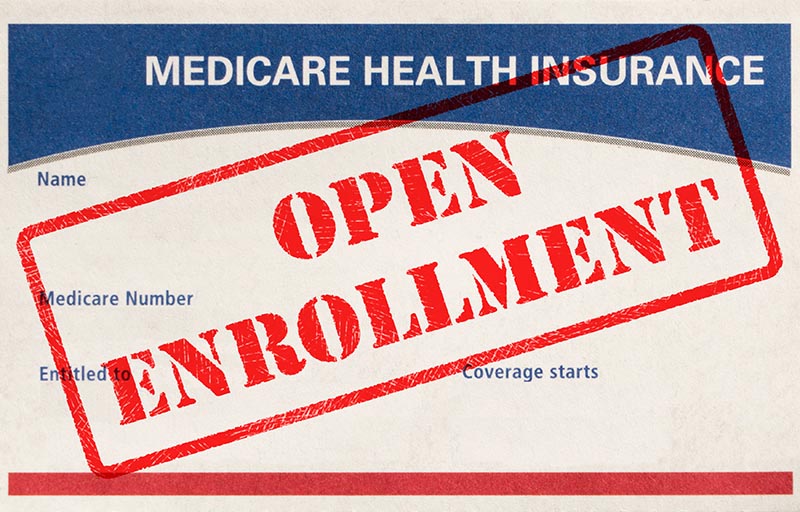By Deborah Jeanne Sergeant
Many people feel confused when choosing a Medicare plan. The numerous options and industry jargon can make plan selection challenging.
Fortunately, area Medicare experts can help guide those new to Medicare or those changing plans during the current open enrollment period, which ends Dec. 7.
“The first thing they should consider is their current health,” said Terry W. James, broker at Medicare Made Easy in Rochester. “What does their health look like historically? Someone getting Medicare at 65 is likely relatively healthy and goes to the doctor once or twice a year will have different needs than someone with a chronic condition, knee replacement pending or a lot of physical therapy.”
Beyond the basic Medicare, the additional plans vary depending upon company and type of plan. In addition to medical needs the plans cover, James encourages clients to consider their comfort level with health conditions. Some want to see their doctor for every twinge. Others are more wait-and-see types who seldom want to use their medical coverage.
“You can have a MediGap plan,” James said. “That’s the higher premium plans, but will result in maybe no co-pays at all, with the exception of Medicare B deductible if you’re new to Medicare. Advantage Plans have a low monthly premium and you have a level of protection with a maximum out-of-pocket. And it usually includes prescriptions.”
Some people stuck on a certain company. Although brand loyalty may seem like a money-saver, James warned it often is not. Some companies’ prescription plans may not cover a policyholder’s medication at the same level as another’s for example.
“Company X might have your prescription cost 10 times Company Z,” James said. “One thing not to do is say, ‘I want Company X because I’ve always had it.’ Or ‘My friends love Company X.’ It may be the best plan for them, but we need to find the best plan for you.”
One of his clients nearly made an $11,000 mistake by wanting to stick with a company that would not cover his medication at the same level as the company James recommended. That was an exceptional case. Typically, the difference is about $1,000 a year.
James also looks at whether a policyholder’s doctors will be covered with the plans they consider. Most people want the comfort of continuity of care. It is also vital for those who travel to ensure that they will receive coverage for non emergency healthcare needs away from home.
“Snowbirds may be better suited if they have coverage that’s a PPO,” James said. “Some have national networks. You could be with a carrier with a national network. Understand whether a carrier has a national network or is just regional.”
Typically, HMOs will not cover routine issues addressed out of network.
Some policyholders stick with the same plan for years and years despite changes in their healthcare needs.
“It would be a mistake to not get professional guidance, especially since it doesn’t cost anything,” said Rick Grossmann, chartered life underwriter and president of ROC Insurance Services in Rochester. “Brokers don’t charge an additional fee to give advice.”
He said that health insurance plans continually change and upgrade their products and many grandfather in clients with outdated plans.
“Oftentimes, people are reluctant to give up their plan because it’s worked in the past,” Grossmann said. “People fear making change. The newer plans are better as they incorporate more benefits. The companies receive subsidies from Medicare to enhance the new plans.
“If someone comes to us and we recognize they’re on an older plan, we always bring to light the newer plans. It’s almost always that they want to move to a newer plan.”
Merely discussing what is new does not place policyholders under obligation to change their plans. If you have questions regarding Medicare part b insurance plans, then you may consider contacting your Medicare agent.

